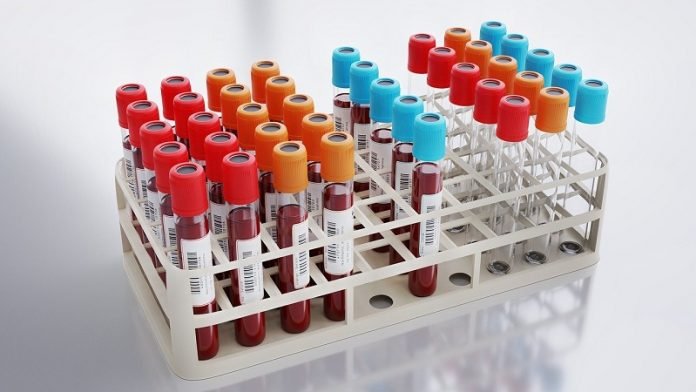
In a new study from University of Texas M. D. Anderson Cancer Center, researchers found that a blood test, combined with a risk model, could more accurately determine who is likely to benefit from lung cancer screening than the current U.S. recommendation.
The U.S. Preventive Services Task Force (USPSTF) recommends that adults at high risk for lung cancer receive a low-dose CT scan each year, which was shown to reduce lung cancer deaths in the 2011 National Lung Screening Trial (NLST).
The 2021 USPSTF criteria applies to adults age 50 to 80 who have at least a 20 pack-year smoking history and currently smoke or have quit within the past 15 years.
In the current study, the team developed a blood test plus model that combines a personalized lung cancer risk assessment with a blood test based on a four-marker protein panel.
The study included participants from the Prostate, Lung, Colorectal, and Ovarian (PLCO) Cancer Screening Trial with at least a 10 pack-year smoking history.
If implemented, the blood test plus model would have identified 9.2% more lung cancer cases for screening and reduced referral to screening among non-cases by 13.7% compared to the 2021 USPSTF criteria.
“A blood test would identify people who could benefit from lung cancer screening but are not eligible today,” Sam Hanash, M.D., Ph.D., professor of Clinical Cancer Prevention and leader of the McCombs Institute for the Early Detection and Treatment of Cancer.
“Tens of millions of people worldwide could benefit from lung cancer screening. If you can improve screening eligibility by even 5%, that is incredibly impactful.”
The study shows for the first time that a blood test could be useful to determine who may benefit from lung cancer screening.
While the blood test plus could be implemented as a lab-developed test soon, Food and Drug Administration approval would be required to conduct a prospective clinical trial.
If you care about lung health, please read studies about newly approved drug that could effectively fight lung cancer, and common diabetes drug that could help treat COVID-19 lung inflammation.
For more information about lung health, please see recent studies about the cause of lung cancer in never smokers, and results showing this stuff in the lungs drives COVID-19 deaths.
The study was conducted by Sam Hanash et al., and published in Journal of Clinical Oncology.
Copyright © 2022 Knowridge Science Report. All rights reserved.




